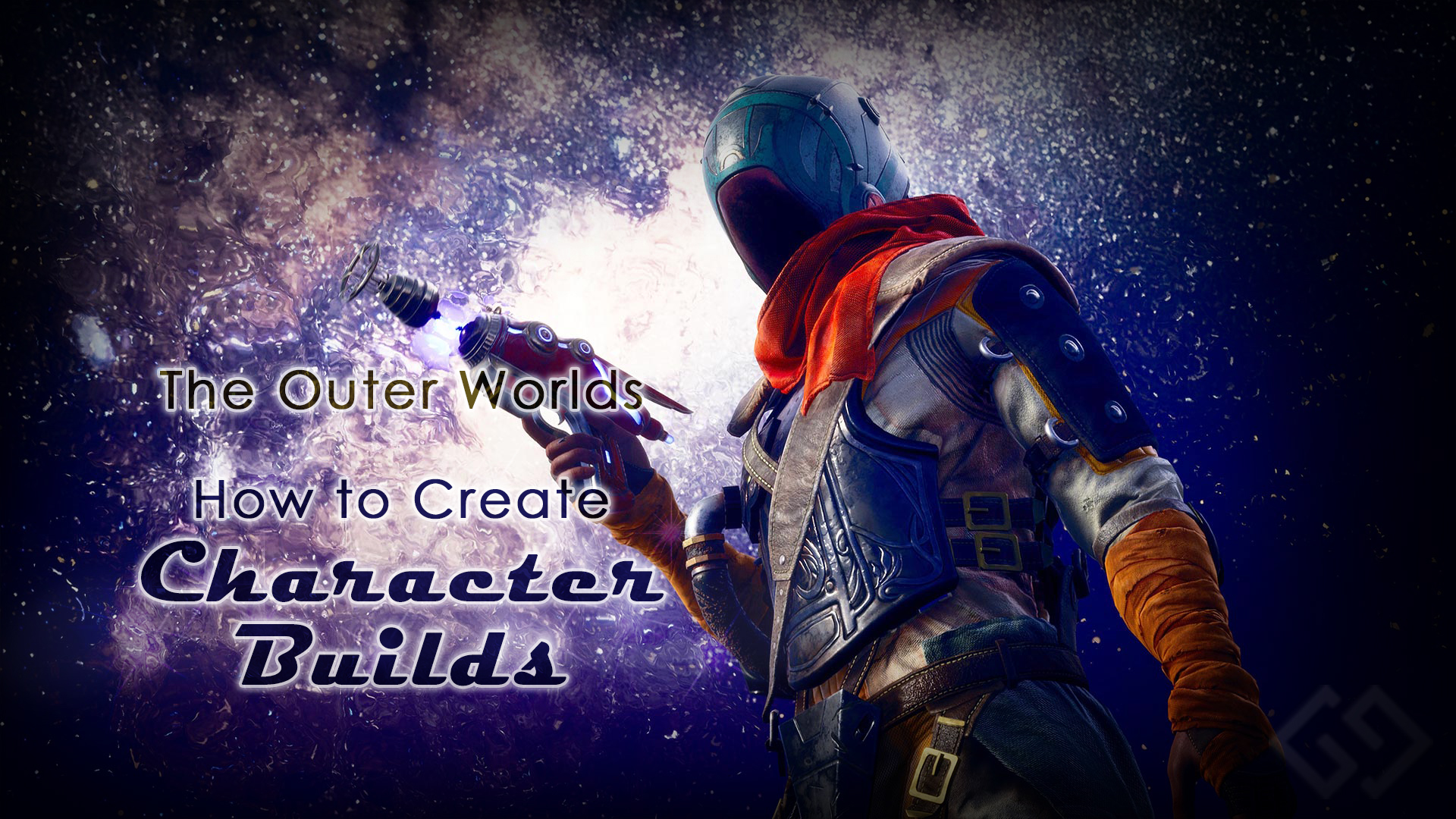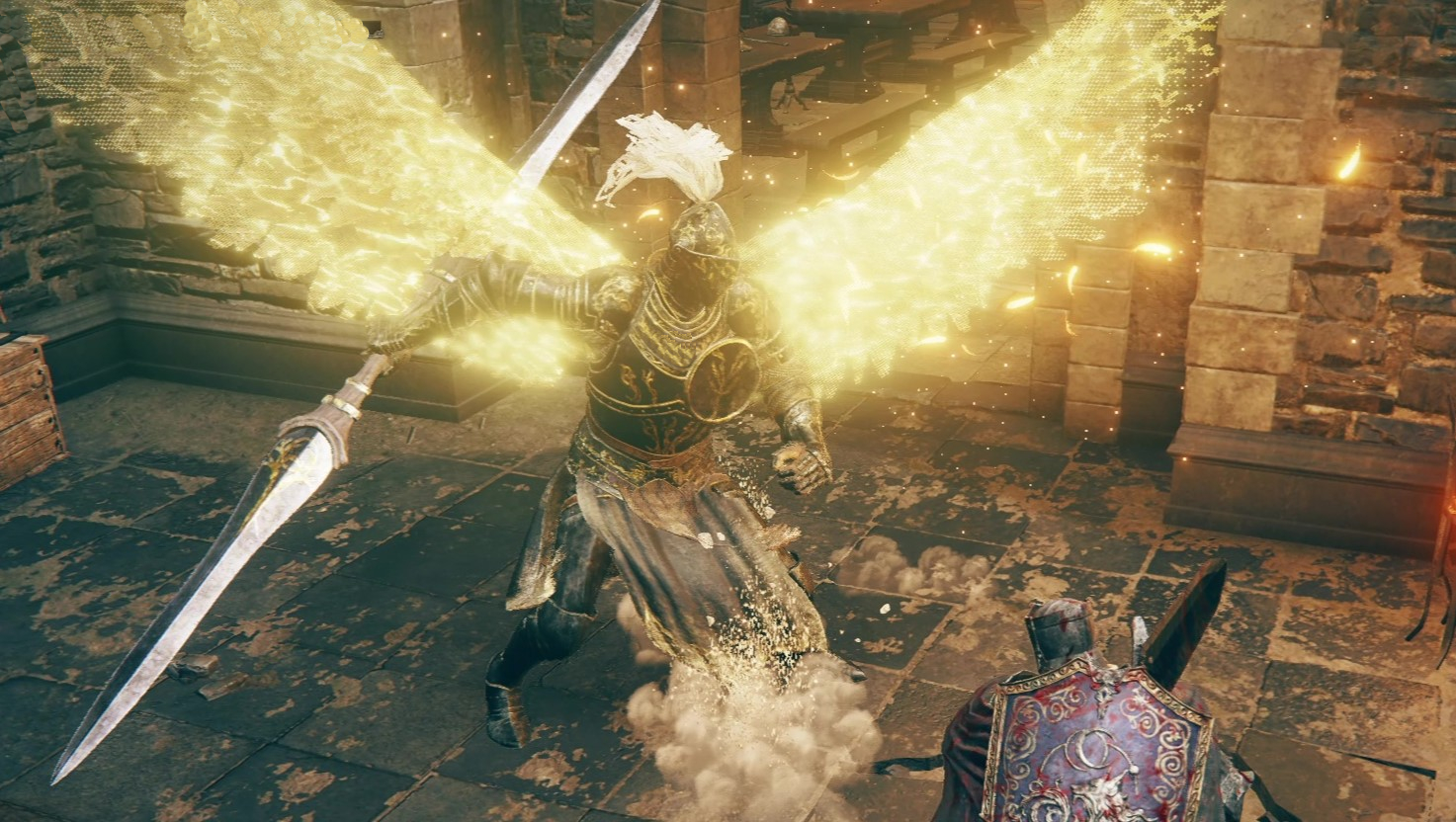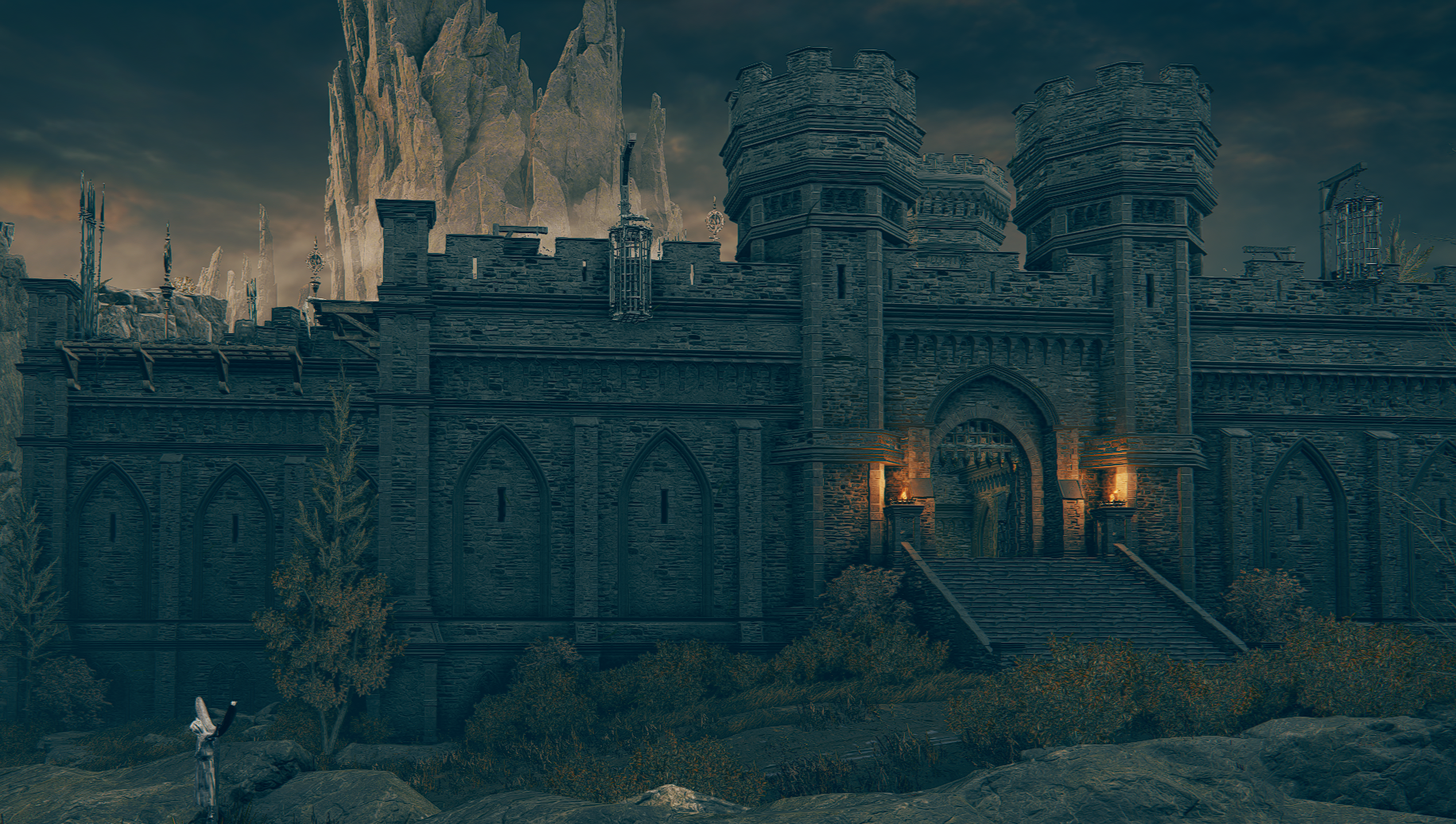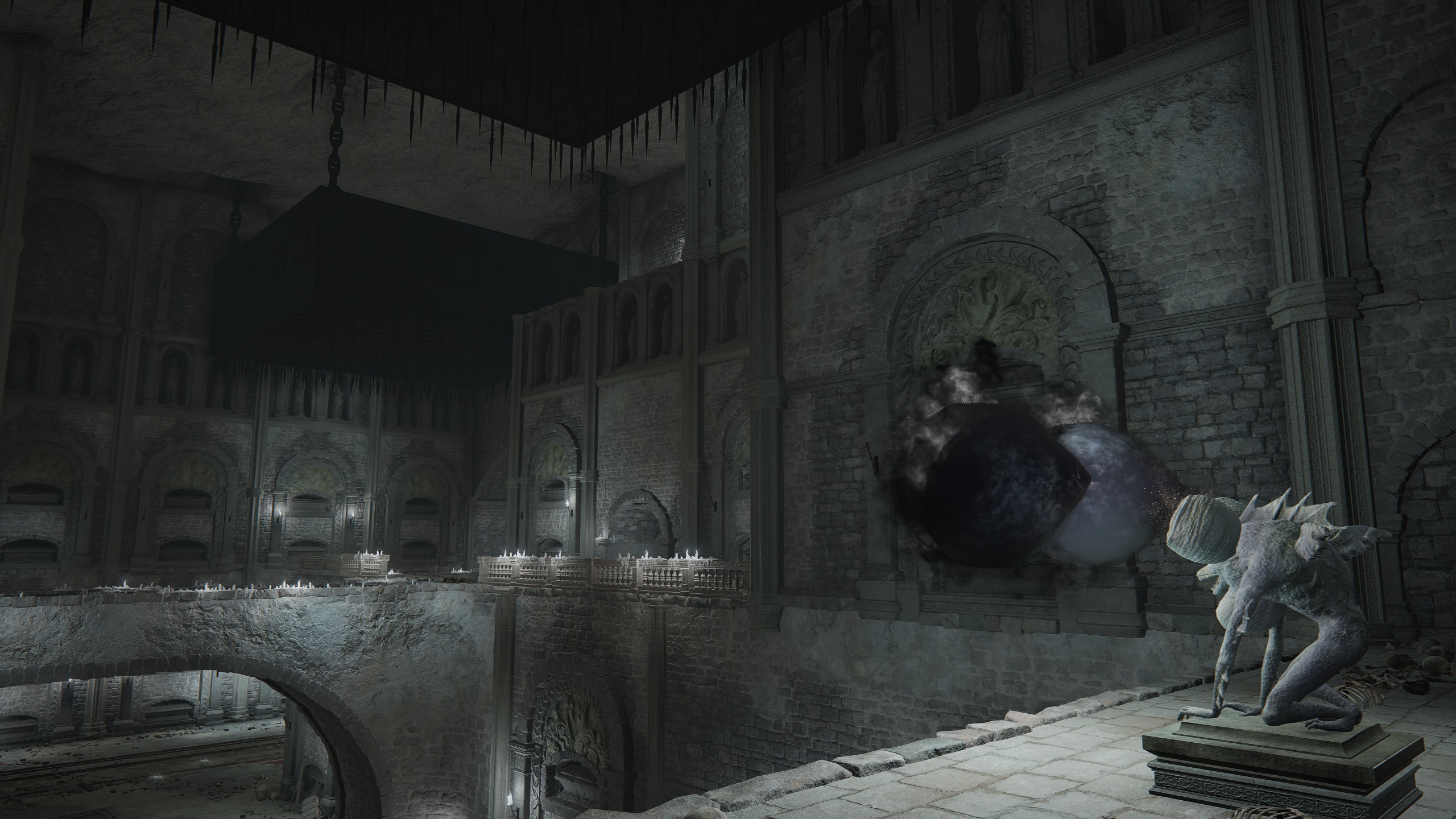Character builds can be a little tricky.
Some look them up for ideas on leveling their character, while others want a particular kind of an experience but don’t know how to get it effectively.
Yet, for some it’s a way of understanding how the character abilities even work and how to tackle certain parts of the game they are struggling with.
In a game with an involved skill system like The Outer Worlds, every character build takes into mind a certain gaming style: quick kills, fun interactivity, interesting dialog options, essential tools for map exploration… and yet, every vision always has to be tuned to how you personally want to play the game.
So, what if none of builds sound quite right when you are trying to decide how you want to approach the detailed world, challenging quests, the overload of loot, and masses of enemies?
Here is a suggestion – let’s discuss the elements of The Outer Worlds experience to consider our own custom build!
In this guide we will walk you through the elements of the gameplay you will need to consider when trying to plan your character to your own taste, in regards to story and roleplay immersion, but also in regards to your combat strategy and adventuring abilities.
A little warning – this guide assumes you will be playing in a difficulty setting underneath the Supernova difficulty and thus will not need to worry about such aspects of the game as basic needs and companion death. This game difficulty would introduce several new considerations to a player’s approach to the game.
Overview
There are three key parts of the character build that will be featured as we consider the different aspects of The Outer Worlds gaming experience.
They are: Attributes, Skills, and Perks. (We have separate detailed guides for each! Feel free to have them pulled up as you follow this guide.)
These are the most controllable and influential aspects of the character’s build, and they are our ultimate focus in this guide.
We will not be talking about Aptitudes due to them having a mostly roleplaying function and a minimal effect on the gameplay (even story-wise).
In this guide we will explore how these parts of the character build can be used to respond to the following aspects of the game: Combat, Exploration, and Dialog and Skill Checks.
We will briefly cover Higher Levels and Flaws in their own section at the end as Additional Considerations.
Combat Ability
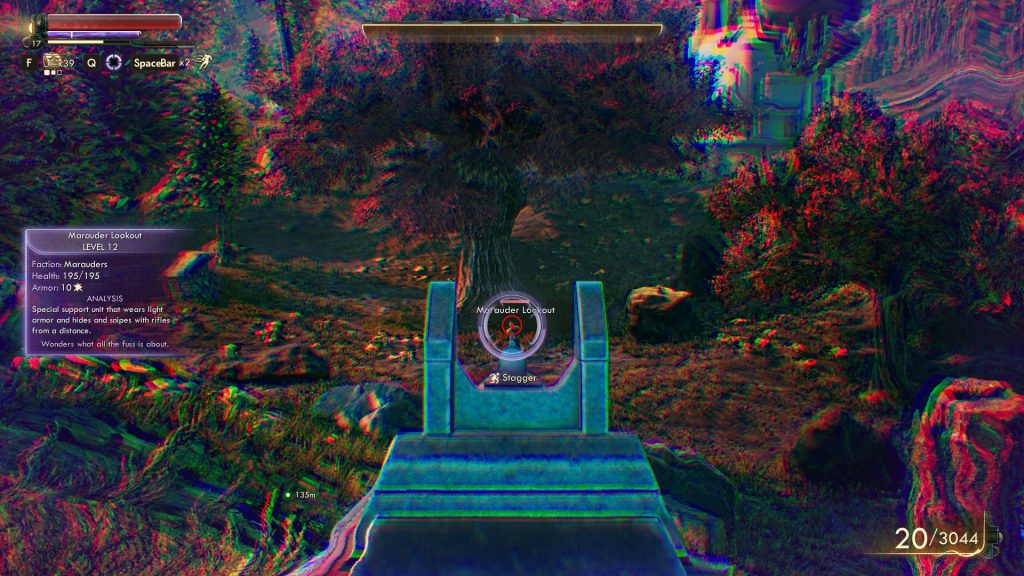
Regardless of what approach you take towards your character, you will need to engage in combat very frequently in The Outer Worlds.
It’s true that dialog skills (see Dialog and Skill Checks below) and side quest rewards can help you avoid more difficult confrontations and make yet others much easier, but the fact remains the same – a lot of what you will be doing while travelling outside of protected towns will be combat.
Melee and Ranged Skills
In a traditional way, you can look how your attributes archetype will immediately lend itself to certain Weapon skills (see our guide on Character Attributes – remember to check the table at the bottom!) or generally think about whether you prefer melee or ranged combat (or both) in The Outer Worlds. Then, simply invest towards them as you acquire useful weapons during gameplay and create your ultimate rotation.
This is probably where you will make a lot of decisions regarding your character’s demeanor. Do they rush into battle with a roaring chainsaw-axe or a heavy flamethrower? Do they unforgivably aim for the weakest spots with their sturdy handgun or a corrosion-imbued sabre? Or do they take out their targets headshot by headshot from the safety of the tall grass (like our Deadly Gun build)?
We discuss a lot of the weapon and damage strategy in our Weapons Guide, so we suggest you look over that to decide what weapons might be the best for the experience you are looking for.
Defensive Combat Ability
Your Defense, Stealth, and Tech skills will be very important in enhancing your combat strategy and rounding off some rough edges of your character’s damage output and sustain.
Defense and dodge, depending on whether you rely on the Tactical Time Dilation, can enhance your ability to take on multiple targets and lead your companions through the field. This is a good idea for a melee build, obviously, but is still something you might want to have a few points in even with a less confrontational character. Otherwise the wilderness of Roseway and Monarch might become your little nightmare.
Stealth’s Sneak skill is quite useful for a sniper or a back-stabbing combat strategy, and will be useful when you decide to get past an area full of tough creatures to take them out using a toxic gas switch or to trap them behind an electric fence. Also, pickpocketing some guards for the keys they refuse to give can become a viable option for getting inside secret places in more restricted areas. Still, remember that your companions also need to have competency in the skill (or a Sneak perk) or you will be quickly discovered regardless of your ability.
Tech skills typically specialize in the maintenance of your health, equipment, and inventory (albeit they give you advantage over particular targets on their highest level – see our Skills guide!). Medical skill will enhance your healing ability and allow you to buff your skills or your health regeneration. Science controls your tinkering (weapon leveling) costs. Engineering regulates cost and effectiveness of your equipment repairs. All of this is essential in sustaining your character during and in between combat encounters.
Still, the Science skill has a peculiar relationship with weapon damage, which we will briefly cover below.
Science Skill
In a traditional way, putting points into your Science Skill will improve the Plasma, Shock, and eventually Corrosion and N-ray damage, which are very effective against particular kinds of targets when using enhanced weapons. We discuss that aspect in our Weapons Guide.
However, even by itself Science Skill can eventually take over your regular weapon specializations in regards to the damage output. With appropriate perks (we discuss them in our Ultimate Perks Guide!) and points in the Science skill you can probably wield a full rotation of unique Science Weapons as you discover them during your adventures and yield tremendous damage.
Consider this as an opportunity to roleplay a tech-y character with little points in weapon skills, for their damage output to exponentially rise over time as they acquire Science Weapons and improve their damage. Still, the same strategy can enhance the regular weapon rotation, if you decide to use the quirks of one or two Science Weapons strategically against your enemies (consider immobilizing your target with a Gloop Gun).
Companion Combat
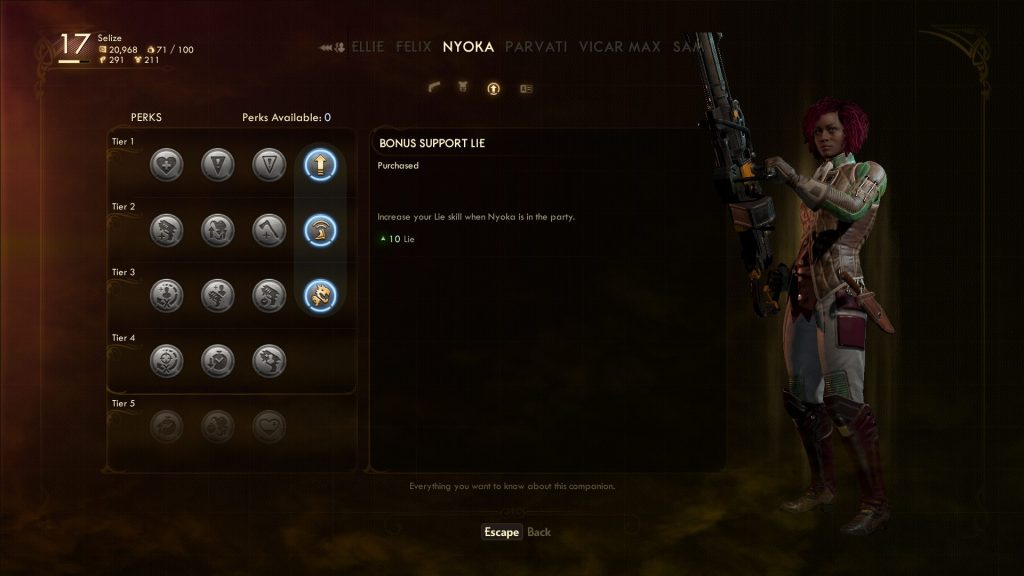
Now we will cover the Dialog and Leadership skills. The Outer Worlds is pretty unique in this regard, since your character can essentially hide behind your followers and let them do all of the difficult work while mostly assisting them from the back.
Your Leadership skills will improve the damage and sustainability of your companions, while your Dialog skills can disable your enemies to improve your defensive and party-targeting strategy. This aspect of the game allows for the builds such as our Charming PhD, a build maintained pretty much entirely by non-physical abilities and relying on their companions to protect them. This is not an easy path to follow in regards to confident wilderness travel, but you can make use of such aspects of the game as the Science Skill benefits (see above) to plan for an exciting higher-level version of your character to strive for. Such an approach can lend itself to an exciting, unique gaming experience.
When using this approach, you can get a lot of use from both Player and Companion perks – we discuss this aspect in detail in our Perks guide!
Exploration and Loot
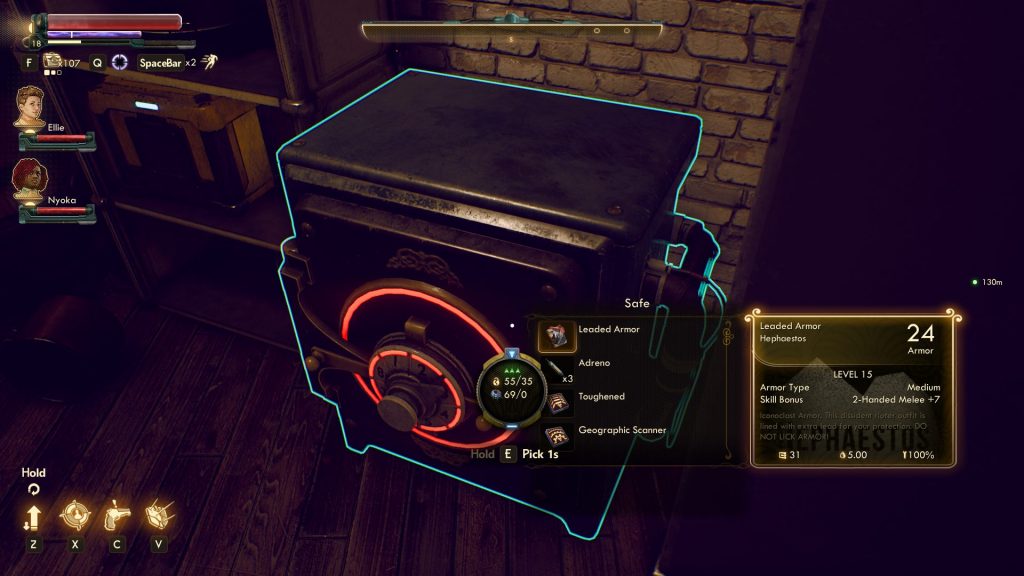
We cover a lot of these aspects in detail in our Carrying Capacity Guide, since most of the skills involved in this category deal with the maintenance of your equipment and inventory.
To be short, you probably want some points in your Tech and Sneak skills to navigate more safely in the wilderness, to cycle through loot, and to get inside places.
You can greatly enhance this experience with perks, such as the ones we have placed under “Movement,” “Exploration,” and “Carrying Capacity” categories in our Ultimate Perks guide. (A lot of your exploration and looting, for example, can be enhanced by the Perk that adds 5 meters to your Interactable Highlight Range, “The Collector”!)
It’s still important to note, however, that Lockpicking will become your #1 skill when it comes to collecting loot effectively. You will be opening a lot, a lot of containers, and you can make it much cheaper for yourself to do if you invest into Lockpicking. Obviously, you can also avoid frustrations of not being able to access secret rooms or important-looking safes, and you might encounter a lot of those if this skill isn’t maintained. Companions like Parvati and Felix can help you with that, but their expertise won’t help you reduce the high Magpick cost over time.
What your Companions will most certainly help you with – and it might not be very obvious at first, is your Carrying Capacity. You might get a bit annoyed with it at first, but your followers will quickly add a good additional weight to your inventory, which you can further enhance with perks.
Dialog and Skill Checks
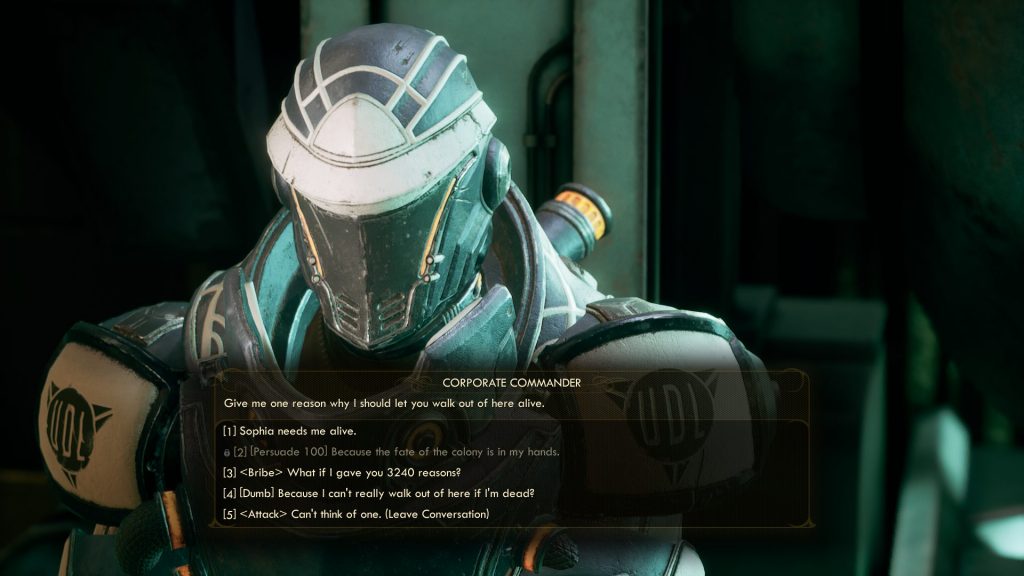
When you have started (or will start) playing The Outer Worlds for the first time you probably noticed that the numbers you invested into the skills and attributes began to matter outside of their interactive use in the practical aspects of the game.
Oh, you know what I am talking about. In obtaining a single item for a go-fetch kind of a quest we see so often in modern RPGs you are free to either complete it in a traditional way (go and fetch the item), use your medical or engineering ability to point out an alternative to your task when talking to the quest-giving NPC, use your perceptive attribute to discover a lie someone tried to use on you, or use your sharp tongue to completely overrule the outcome of the situation.
The Outer Worlds often offers delightfully unexpected solutions to the fun challenges it continuously sets in your way.
Depending on how you think about your character, these little decisions available to you can turn out to be extremely fulfilling when it comes to interacting with the world through the mind of your character. And choices like these are regulated by the game’s ability and skill system.
So, how do you make the most out of this experience? Well, honestly, there is really no way to predict what skill will end up being suddenly useful during your adventuring, but we will point out a few that will show up in dialog sequences and occasionally inside terminals as you progress your quests.
(You can learn a lot about the checks available to you in the game if you enable the setting for showing checks your character is unqualified for in the game settings.)
Dialog Skills
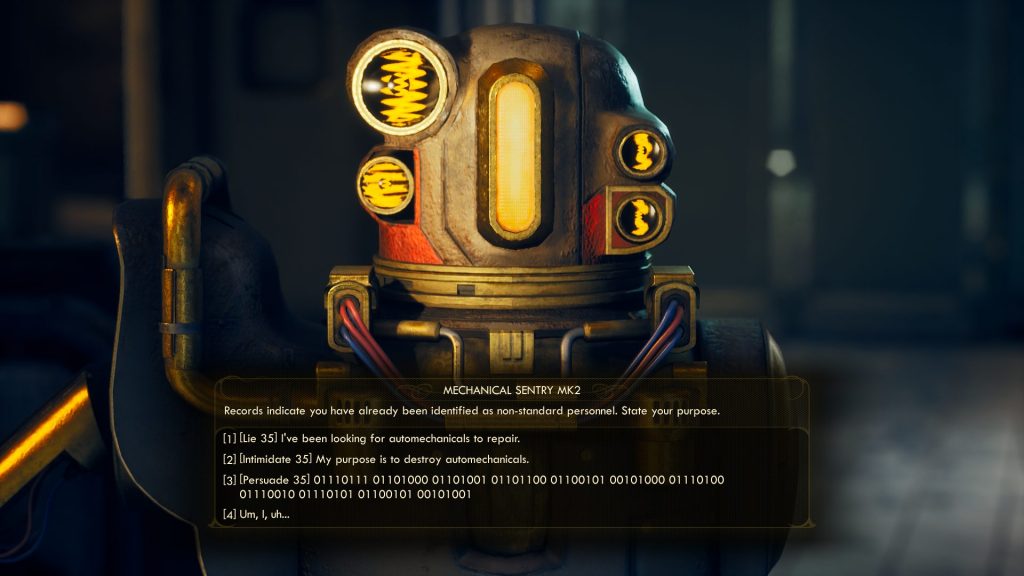
Firstly, unless it goes against your character vision, you should invest points into one of your Dialog skills.
Persuasion is the most flexible of them all, but you might now expect Lie and Intimidate to come up in a few unique situations as well. Furthermore, these skills are occasionally required to get certain NPCs to do something crucial to the mission you are working on.
You will get a lot more out of the game’s story if you follow this advice, but also if you make this decision yours. So, try to think about how your character would generally approach strangers in their life – would they be glaring and silent? Sly and sneaky? Or able to deliver a simple statement in a dramatic and powerful tone?
Tech Skills
When it comes to creative quest solutions, Tech skills easily take the second place.
Medical, Science, and Engineering skills will come up more often than might seem at first. Science and especially Medical expertise might help you navigate through some lab terminals and point useful things out in dialog (at which point Ellie will probably join the conversation) or patch people’s wounds. Engineering will definitely come up with a few central terminals and automechanicals, and it will be crucial to some missions (and Parvati will be quite happy to assist you).
Tech skills have the ability to assist you in both exploration and combat, so you will probably want a few points invested towards them, even if you don’t see your character as a talented Engineer (think Parvati) or an experienced Medic (think Ellie).
Attributes
Perception and Intelligence are a notable pair of attributes that come up in dialog as a way of pointing out something useful or learning more information that would otherwise be unavailable. In rare cases, a Perception or Intelligence check could replace their Dialog skill counterparts, too!
Rarely, a Temperament attribute check is an option to demonstrate your character’s endurance. You might get a Strength or a Charm check, but only a couple times throughout.
Alternatively, you can take an opposite route from having higher Intelligence and unlock some fun Below Average Intelligence dialog options (“[Dumb]” dialog options) that will spice up your conversations for the entire game, albeit when they have a real effect it will mostly be getting yourself into trouble or unlocking ridiculous endings.
Other
Weapon proficiencies will come into play quite rarely, albeit you will have an opportunity to use your 2-Handed or 1-Handed Melee skill, occasionally with a Dumb or Intimidation check to create a couple unique responses to a couple particular situations during the game.
You might see the Leadership skills (Inspiration and Determination) come up a couple or so times in conversations with your companions.
Hack skill will obviously come up very often when it comes to messing with the contents of the terminals, but this and other Stealth skills still function in an expected way in almost all of the cases during the game, so we reserved them for the Exploration section of this guide.
Note: remember that an improved Medical inhaler or an Armor Mod can buff your character with additional 5-15 skill points.
Finally, keep in mind that your companions will become crucial in increasing the total values of your non-combat skills (they share half of their points with you as they level up). This won’t unlock your skill bonuses, but it can get you through a few high skill checks. Your companions might also point out a less obvious solution to a quest’s challenge. They will also occasionally respond to the NPCs you talk to and will sometimes be highly recommended by your quest-givers to have around for certain missions (one of the SubLight questlines, for example). Your companions can help you with every skill except those in weapon, defense, and leadership categories.
We suggest you to check out our Companion Strategy guide to get the most out of your followers and fit them within your strategy!
Additional Considerations

Before we conclude the guide, here are a few things you want to keep in mind when you make decisions in regards to your character’s skill points and perks, before you head into the world and as you level them up.
Flexibility On Higher Levels
If you are still a little worried about the choices you make heading into the game, know that unless you really challenge yourself with several Below Average attributes, you will have a pool of skill points and perks, very powerful weapons and armor, a mass of wealth, and leveling companions to significantly improve your competence inside the game as you progress through the quests. Things will begin to get significantly more manageable on higher levels. If you notice the enemies and obstacles getting too challenging, just take a side quest or two to gain a level and see if that helps things. (Bottom line, you can change the difficulty at any time through the settings.)
And, this is important – you can completely respec your character’s skills and perks for 500 bits back at the Unreliable (at the Vocational Competence Respecification Machine). Yes, the cost will go up over a few more uses, but it will still be trivial to you as you amass your hoards of bits.
While the attributes can’t be changed through this process, your skill points will dictate the majority of your interactions. Beware that you can severely limit yourself if you accept certain penalties from Attributes (say, no health regeneration from Below Average Temperament or very rigid faction reputation from Below Average Charm), even though they can be temporarily restored to Average levels by Mind and Body attribute food bonuses.
In other words, look through the Attributes carefully when creating your character and otherwise just try out what feels right!
Flaws
Perks can be pretty powerful for a character build, but with how many of them you will be able to unlock over time you will probably able to cover the ones most useful to your combat, story, and exploration strategy. Because of that Flaws aren’t something you have to worry too much about, unless you want to bravely accept them as a rewarding challenge (you get a perk point when accepting a flaw) or something that goes well with how you envision your character.
If you took on the Below Average Temperament with a particular vision in mind, taking a Drug Addiction Flaw will probably go along with how often you use the inhaler, if you wanted more realism and urgency to your shaking character with an absent immune system, kept alive by Adreno, Alcohol, and Cigarettes. Besides, you will probably see this flaw pop up pretty early into the game.
Beware that some Flaws are more serious than others for the majority of the gameplay styles, and the damage they do might not convert into a Perk point as nearly. Permanently Crippled will make travel on foot much, much more annoying (with the penalty to movement speed), compared to the Farsighted more manageable 10-point penalty to melee weapons (especially for a sniper build). Something like taking a penalty to an Average-level attribute can also have serious consequences. Consider Flaws carefully when you get the offer.
